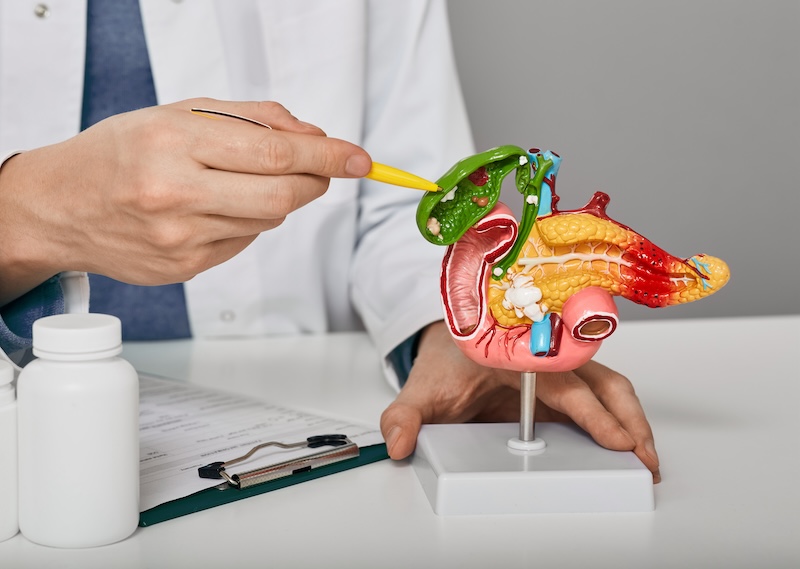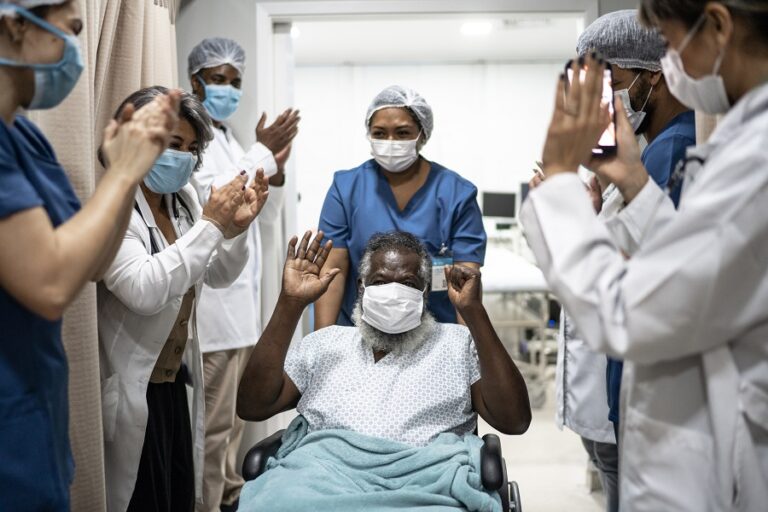Could Your Abdominal Pain Be Gallbladder Disease? Here’s How to Know
Dr. Malladi at Malladi Bariatrics & Advanced Surgery sees many patients who experience abdominal pain, and a surprisingly frequent culprit can be the gallbladder. Often, these patients have already consulted other doctors but haven’t received a definitive diagnosis for their gallbladder issues.
This blog post aims to raise awareness about gallbladder disease as a potential cause of abdominal pain and empower you to recognize its symptoms. It also highlights the importance of seeking proper evaluation and treatment.
Why You Should Be Aware of Gallbladder Disease:
The gallbladder is a small organ located in the upper right abdomen, just beneath the liver. Its primary function is to store and concentrate bile, a digestive fluid produced by the liver. Bile helps break down fats in the small intestine, enabling proper digestion and absorption of nutrients.
Gallbladder disease encompasses various conditions affecting this vital organ, with gallstones being the most common. However, it’s important to note that not everyone with gallstones experiences symptoms. Additionally, individuals without gallstones can still experience similar symptoms due to biliary dyskinesia, a condition characterized by impaired function of the gallbladder, which can manifest as either hypo or hyper function. This means the gallbladder may not store or release bile effectively, leading to digestive problems.
Recognizing the Signs and Symptoms:
If you experience any of the following, it’s crucial to seek medical attention to rule out gallbladder disease:
- Upper abdominal pain: This is the most common symptom and often feels like a steady ache or gnawing pain. While it typically occurs in the upper right quadrant (just below the rib cage), it can also radiate to the upper mid-abdomen (epigastric region).
- Nausea and vomiting: These often accompany the abdominal pain and can be quite intense.
- Indigestion: You may experience heartburn, bloating, or a feeling of fullness, especially after eating fatty or greasy foods.
- Fever and chills: These are more pronounced in cases of inflammation, such as cholecystitis (gallbladder inflammation).
- Jaundice: This is a yellowing of the skin and the whites of the eyes, caused by a buildup of bilirubin.
Seeking the Right Diagnosis and Treatment:
If you suspect gallbladder disease, it’s essential to consult a qualified healthcare professional. Dr. Malladi at Malladi Bariatrics & Advanced Surgery can provide comprehensive evaluation and diagnosis using various methods, including:
- Detailed medical history and physical examination: This helps Dr. Malladi understand your symptoms and overall health.
- Imaging tests: Ultrasound, CT scan, or HIDA scan can visualize the gallbladder and identify gallstones or other abnormalities.
- Blood tests: These can check for signs of infection or inflammation.
Following a thorough evaluation, Dr. Malladi can recommend the most appropriate treatment course. Depending on the severity of your condition, treatment options may include:
- Lifestyle modifications: Dietary changes, weight management, and stress reduction can help manage symptoms and prevent future issues. However, it’s important to understand that lifestyle changes cannot dissolve existing gallstones.
- Medication: While no medication currently exists to dissolve gallstones, certain medications can be prescribed in specific circumstances to help prevent gallstone formation.
- Surgery: Laparoscopic cholecystectomy is a minimally invasive surgical procedure to remove the gallbladder. This is the most common treatment for symptomatic gallstones and dysfunctional gallbladders (biliary dyskinesia) that fail to respond to other interventions.
Malladi Bariatrics & Advanced Surgery: Your Partner in Abdominal Pain Diagnosis and Treatment:
Dr. Malladi is committed to providing her patients with personalized, compassionate care. If you experience persistent abdominal pain and suspect gallbladder disease, don’t hesitate to schedule an appointment. Dr. Malladi will work diligently to diagnose the cause of your pain and develop a treatment plan that aligns with your individual needs and preferences.
Remember, early diagnosis and intervention are crucial for managing gallbladder disease effectively and preventing potential complications. By being informed about the signs and symptoms and seeking professional help promptly, you can take charge of your health and well-being.







